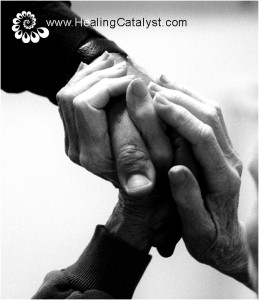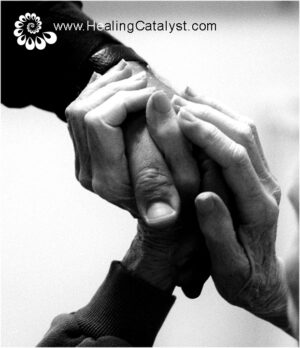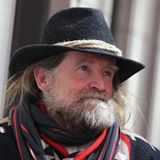
Talking about Your Own Death can be a Rewarding Experience – Here’s how to get started…
Oddly enough, the subject of death is becoming wonderful to me – not exactly fun, but fascinating and intensely worth learning about. I mean, it’s the exam we all have to take at some point – required from our very first heartbeat. I’m starting to see how poorly most of us are prepared for our own end and how rich the rewards are as we face our demise with curiosity and appreciation.
Our culture doesn’t want to look at death. We act as if it’s something we can avoid if we don’t think about it… But that leaves us completely unprepared, scared, and impoverished as our number inevitably comes up.
I’ve only been involved in a few deaths and while that is fairly common for a modern American, that seems completely unnatural in the big human picture. Still, I’ve seen enough to grok the difference between a conscious death and an unconscious one. When generations live together, we grow up learning the wisdom, changes, rewards, and losses that come with aging. We can see which choices lead to healthy outcomes and the drawn-out consequences of behaviors and life decisions. When we put our elders in homes or they are far away as they dwindle, we miss the opportunity to learn the lessons of letting go, illness, remorse, gratitude, and perspective that are often part of the end of life.
Death is the Exam We All Take
I’ve come to love the wisdom of Stephen Jenkinson, Griefwalker, who is helping us heal our denial about death. He’s very wise, very down-to-earth and I look forward to reading his new book, Die Wise: A Manifesto for Sanity and Soul. Meanwhile, there are some beautiful audio and video presentations on/by him on the Internet. PLEASE start to tune into to his teachings. www.orphanwisdom.com. He is the most articulate spokesman for sanity and balance and deep wisdom I can point you to.
This isn’t being morbid. Death is part of life and becoming familiar with it enables us to appreciate life and live it fully. It’s just unfamiliar to us if we didn’t grow up with elders living close; didn’t see extended family members dying; and haven’t had these kinds of conversations as part of life. Few of us grow up on farms anymore or have that intimate awareness of the deaths that brings us our food – so that we may live in an ongoing cycle.
For starters, talking about death is a lot easier when it doesn’t feel personally close. When I imagine my own death, I feel better projecting that I have made the necessary the choices and arrangements well ahead of time and not left a mess for my family to untangle while they grieve. I see no reason why I wouldn’t live a long, healthy life, but I’m paying attention, and I see that very few make it into their 90s with both mind and body functioning well. I could get killed in a car accident tomorrow. Something could happen suddenly that leaves me unable either physically or mentally to make my final arrangements. So I want to address my end-of-life questions NOW, while I can easily, and while it feels relatively far away. I encourage you to do the same.
Start the Conversation
I’m going to my book club’s Death over Dinner tonight. I’ll let you know how it went next week. For your own conversation starter kit, go to www.deathoverdinner.org
Watch: You only die once. Engage with Grace. (TEDMED talk) Eliza Founder, Alexandra Drane delivers a passionate talk about the need to discuss end of life decisions, and how we can approach this topic with grace and dignity. At the heart of this short video is a powerful story of losing a family member to cancer.
If you’ve experienced the death of someone very close, start by watching Griefwalker. Once you see this, you will get why I am so insistent and want to share it with your family and friends…
Watch: Griefwalker, 2008, Canada about Stephen Jenkinson 70 min. https://www.nfb.ca/film/griefwalker <= Available directly to watch through this link; you can also stream it on Netflix. It answers the question: What does it take to fall in love with being alive?
If you have already seen Griefwalker, or are more used to this subject, jump into this interview:
Listen to: Culture of Dying = https://soundcloud.com/orphan-wisdom/stephen-jenkinson-culture-of-dying Stephen Jenkinson explains how our culture teaches us to deny death and sadness. He thought-provoking tells how to turn this around. The interview starts slowly so I recommend that you advance it and begin at minute 8:30 and continue listening at least to minute 25:00. I chose to skip minutes 44-49. Keep going with minutes 50:00 =>1:26 if you’re still interested. By then, you may want to listen to the whole thing but you an also skip the first and last parts. From min 49:00=> he talks about becoming an elder!… (brilliant)
Watch: Departures, the 2008, Oscar –winning, funny and sweet-sad Japanese film. http://www.imdb.com/title/tt1069238/
You can stream it on Netflix. It’ll make you laugh, and cry – but you’ll remember the laughs.
Read: Terminally Ill Writer Writes Her Own Obituary
Jane Lotter writes her own raw and poignant obituary before using Washington’s Death With Dignity Act to die peacefully.
Death is not a failure to live. It’s inevitable and can be a beautiful part of life. Learning more about it is a fabulous journey toward consciousness that we can take together, as friends, family and people who care about each other.
#death #consciousdying #deathoverdinner #endoflife #Griefwalker #StephenJenkinson


